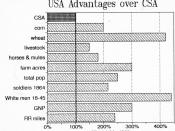There are four frequently used job evaluation.
Job evaluation methods rank, classify, or compare job factors in order of difficulty or importance of contribution to the organization. Most employees believe that persons of equal job status should earn comparable salaries. The difference in salaries may be justified in terms of skill, seniority, type of work, and or place of work. However, dissatisfaction may occur where there appears to be no valid reason for difference in salary that exists. The administrative process (know as job evaluation, the basis for determining relative net worth of jobs in a organization from the lease to the most complicated.) should be initiated to maximize productivity for each dollar invested in an employee. Based on the type of job evaluation that is implemented each will render a very different results. Some organizational procedures attempt to qualify the job evaluation through the use of weighted points, while other procedures rely of the supervisor in rating each job.
Let's explore the advantages and disadvantages of the four methods of job evaluations, as elaborated upon in Ivancevich (2004).
Job ranking.
This method list jobs in order of precedence, requiring evaluators to a compare one position versus another. It implements a "whole job" concept, from the simplest to the most challenging.
(Advantages). The size of the company definitely matters; this process is better suited for small organization. It also offers simplicity by prioritizing each position according to the importance of its contribution. (Disadvantages) The raking is supported on the subjective judgment of supervisors or evaluation committee. Therefore, the unusual aspects of a job may not be considered. Reliability utilizing this process is poor. Job ranking does not attempt to apply mathematical calculations or requirements and no set of job factors is used as a scale for verification. Because of these...



Job Evaluation
I learned a lot from this essay, but maybe you should consider formatting it differently so its more fluent.
0 out of 0 people found this comment useful.